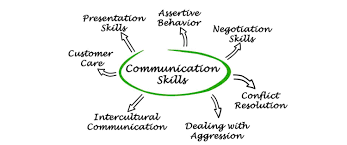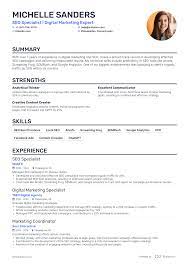Enhancing Professional Success Through Communication Skills Training
The Importance of Communication Skills Training
Effective communication is a vital skill in both personal and professional settings. Whether you are interacting with colleagues, clients, or customers, the ability to convey your message clearly and confidently can make a significant impact on your success.
Communication skills training plays a crucial role in helping individuals develop the necessary tools to communicate effectively. Through training programmes, participants can learn how to improve their verbal and non-verbal communication, active listening skills, conflict resolution techniques, and more.
One of the key benefits of communication skills training is that it can enhance relationships and collaboration within a team or organisation. By improving communication among team members, productivity can increase, misunderstandings can be reduced, and overall morale can be boosted.
Furthermore, strong communication skills are essential for leadership roles. Leaders who can articulate their vision clearly and inspire others through effective communication are more likely to succeed in guiding their teams towards common goals.
Communication skills training also helps individuals become more adaptable in various situations. Whether it’s delivering a presentation, participating in a meeting, or handling difficult conversations, having strong communication skills enables individuals to navigate different scenarios with confidence.
In today’s digital age, where communication often takes place through emails, instant messaging, and video calls, honing effective written and virtual communication skills is equally important. Communication skills training can provide guidance on how to craft clear and concise written messages and engage effectively in virtual meetings.
In conclusion, investing in communication skills training is an investment in personal and professional growth. By developing strong communication skills, individuals can enhance their relationships, boost their career prospects, and become more confident communicators overall.
Mastering Communication: 9 Essential Tips for Effective Interaction
- Practice active listening by giving your full attention to the speaker.
- Use positive body language, such as maintaining eye contact and open gestures.
- Develop clarity in your communication by being concise and avoiding jargon.
- Ask for feedback to understand how others perceive your communication style.
- Adapt your communication style to the audience you are addressing.
- Utilise storytelling techniques to make your messages more engaging and memorable.
- Practice empathy by trying to understand others’ perspectives and emotions.
- Work on improving your non-verbal communication skills, such as facial expressions and tone of voice.
- Be open to learning and continuously improving your communication skills.
Practice active listening by giving your full attention to the speaker.
To improve your communication skills, it is essential to practice active listening by giving your full attention to the speaker. Active listening involves not only hearing the words being spoken but also understanding the speaker’s message, emotions, and intentions. By demonstrating genuine interest and focus on the speaker, you can build rapport, show respect, and enhance mutual understanding in conversations. This simple yet powerful technique can significantly improve your communication effectiveness and strengthen relationships in both personal and professional settings.
Use positive body language, such as maintaining eye contact and open gestures.
When engaging in communication skills training, it is essential to utilise positive body language to enhance your message delivery. Maintaining eye contact and employing open gestures can convey confidence, attentiveness, and sincerity to your audience. These non-verbal cues play a significant role in building rapport and establishing trust during interactions. By incorporating positive body language into your communication style, you can create a more engaging and impactful dialogue that fosters better understanding and connection with others.
Develop clarity in your communication by being concise and avoiding jargon.
Developing clarity in communication is essential for effective interaction. One key tip in communication skills training is to be concise and avoid using jargon. By keeping your message clear and to the point, you ensure that your audience understands the information easily. Avoiding jargon helps in making your communication more accessible to a wider audience, eliminating confusion and promoting better engagement. Clear and concise communication not only conveys your message effectively but also reflects professionalism and enhances the overall impact of your interactions.
Ask for feedback to understand how others perceive your communication style.
Asking for feedback is a valuable tip in communication skills training as it allows individuals to gain insight into how others perceive their communication style. By actively seeking feedback from colleagues, mentors, or peers, individuals can identify areas for improvement and make necessary adjustments to enhance their communication effectiveness. Understanding how others perceive your communication style can help you tailor your approach to better connect with and influence others, ultimately leading to more productive and meaningful interactions.
Adapt your communication style to the audience you are addressing.
Adapting your communication style to the audience you are addressing is a crucial tip in communication skills training. By tailoring your approach to suit the preferences, knowledge level, and expectations of your audience, you can ensure that your message resonates effectively. Whether you are speaking to colleagues, clients, or stakeholders, adjusting your communication style can enhance understanding, engagement, and receptiveness. This skill not only demonstrates empathy and respect for your audience but also increases the likelihood of achieving your communication goals successfully.
Utilise storytelling techniques to make your messages more engaging and memorable.
By incorporating storytelling techniques into your communication skills training, you can elevate the impact of your messages by making them more engaging and memorable. Storytelling has a unique ability to captivate audiences, evoke emotions, and convey complex ideas in a compelling and relatable manner. By weaving narratives into your communication style, you can create a lasting impression on your listeners, helping them connect with your message on a deeper level and enhancing their overall understanding and retention of the information being shared.
Practice empathy by trying to understand others’ perspectives and emotions.
Practising empathy is a fundamental aspect of communication skills training. By making a conscious effort to understand others’ perspectives and emotions, individuals can build stronger connections and foster more meaningful interactions. Empathy allows us to put ourselves in someone else’s shoes, leading to better communication outcomes as we consider the feelings and viewpoints of others. This empathetic approach not only improves relationships but also enhances overall communication effectiveness by promoting understanding and mutual respect.
Work on improving your non-verbal communication skills, such as facial expressions and tone of voice.
To enhance your communication skills effectively, focus on refining your non-verbal communication abilities, including mastering facial expressions and controlling your tone of voice. These aspects play a crucial role in conveying emotions, intentions, and attitudes during interactions. By consciously working on improving your non-verbal cues, you can ensure that your messages are received accurately and positively, ultimately fostering better understanding and connection with others.
Be open to learning and continuously improving your communication skills.
To truly benefit from communication skills training, it is essential to adopt a mindset of openness to learning and a commitment to continuous improvement. By embracing the opportunity to enhance your communication skills, you not only expand your knowledge and capabilities but also demonstrate a willingness to grow personally and professionally. Being receptive to feedback, seeking out new learning opportunities, and actively practising effective communication techniques can help you evolve into a more confident and proficient communicator. Remember, the journey towards mastering communication skills is ongoing, and by staying open to learning, you pave the way for continuous self-improvement and success in all aspects of your life.




